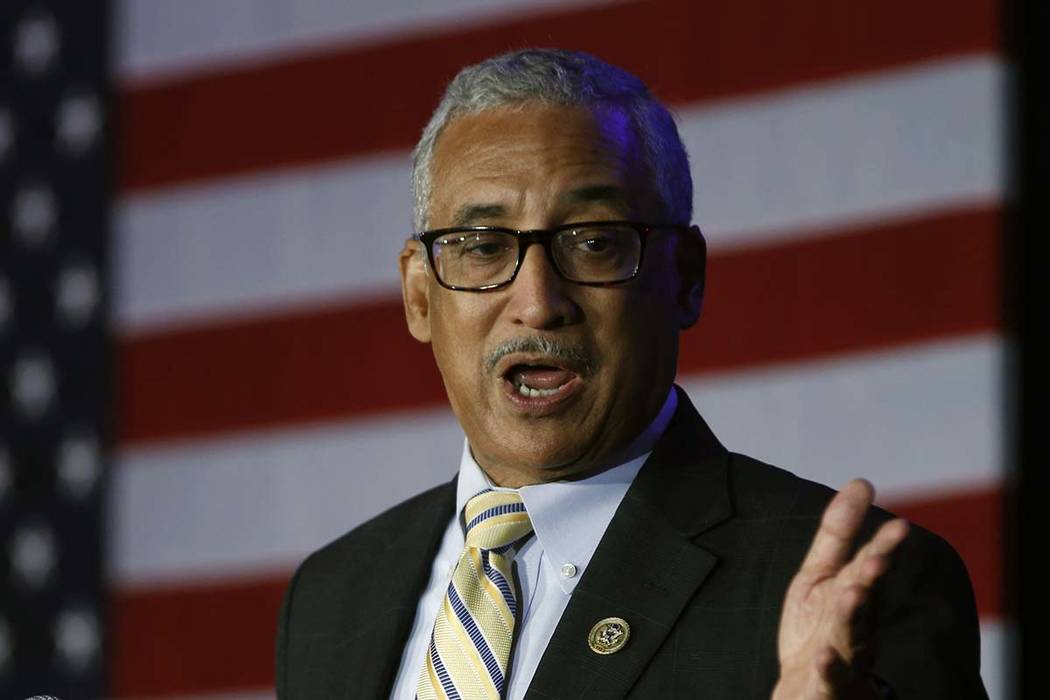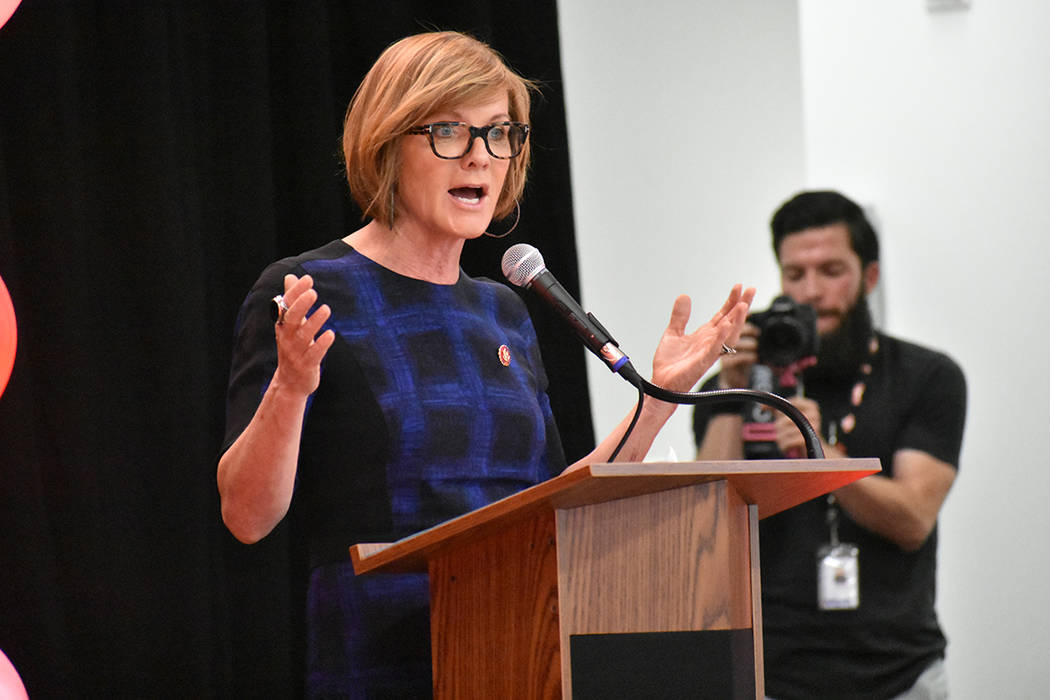Nevada State College forum examines education challenges
At a Nevada State College event focused on minority students in higher education, Rep. Susie Lee, D-Nev., and House Education and Labor Committee Chairman Bobby Scott emphasized that a college education is still the key to opportunity.
But Scott, D-Va., said reforms are needed to restore a longstanding promise to young people that their education will be affordable.
“An entire generation of students is now questioning whether college is worth it,” he said. “That is certainly a major step back.”
Scott said students who have seen their older siblings and neighbors struggle under the burden of paying back student loans hesitate to put themselves in the same situation. But because two-thirds of jobs in the future will require education and training beyond high school, the federal government must step in to make higher education attainable once again, he added.
Pell Grants could be expanded, Scott said, as the typical award offered to students from low- income backgrounds doesn’t stretch as far as it used to. With the proper oversight, he said, the program could be expanded to include short-term programs at community colleges or those approved by state workforce departments.
“That transformation ought to be available to people whether they’re going for a four-year degree or a short-term program,” he said.
Scott also excoriated critics of a potential free college program, estimated to cost $900 billion, saying that a $1.5 trillion tax cut passed last year could have been better spent on education. Those remarks earned a chorus of approval from the crowd of about 100 students and residents.
But he added that forgiving the $1.5 trillion national student debt burden would not necessarily be the best use of that money, either, as it wouldn’t benefit students starting classes tomorrow. Instead, he’d like to see interest rates for those loans reduced, while making loans easier to understand for future borrowers.
The Nevada State College event was part of a series of diversity-focused presentations at the Nevada Systems of Higher Education during the week of Sept. 30. Lee, whose district includes the college, also sits on the House Education and Labor Committee.
She recounted her own experience relying on Pell Grants and other loans to get through college while working multiple jobs, including one in her school’s cafeteria.
“I’d go home with food because I didn’t know if I’d have money to buy food later in the day,” Lee said. “I know those struggles are struggles our students have today.”
As a state particularly threatened by automation, Nevada presents an opportunity to train its young people in in-demand fields like cybersecurity, Lee said.
She also stressed the need for intersectional, whole-student solutions that take into account the particular challenges facing minority students, many of whom are first-generation college students who must balance school with work.
Transportation, child care and support systems all factor in, Lee said.
The support programs that begin in high school sometimes taper off, leaving students starting college to figure it out for themselves, Lee said.
“Those problems persist, and they become more complicated,” Lee said. “There’s not a one-size-fits-all solution to address all the problems in higher ed.”
Contact Aleksandra Appleton at aappleton@reviewjournal.com or 702-383-0218. Follow @aleksappleton on Twitter.
























